Many ferments call for sugar… yet is a sweetener always necessary? Most of the time, no! Learn about when you can leave the sugar out, when you can use alternative sweeteners in ferments, plus the two types of ferments that always need real sugar!
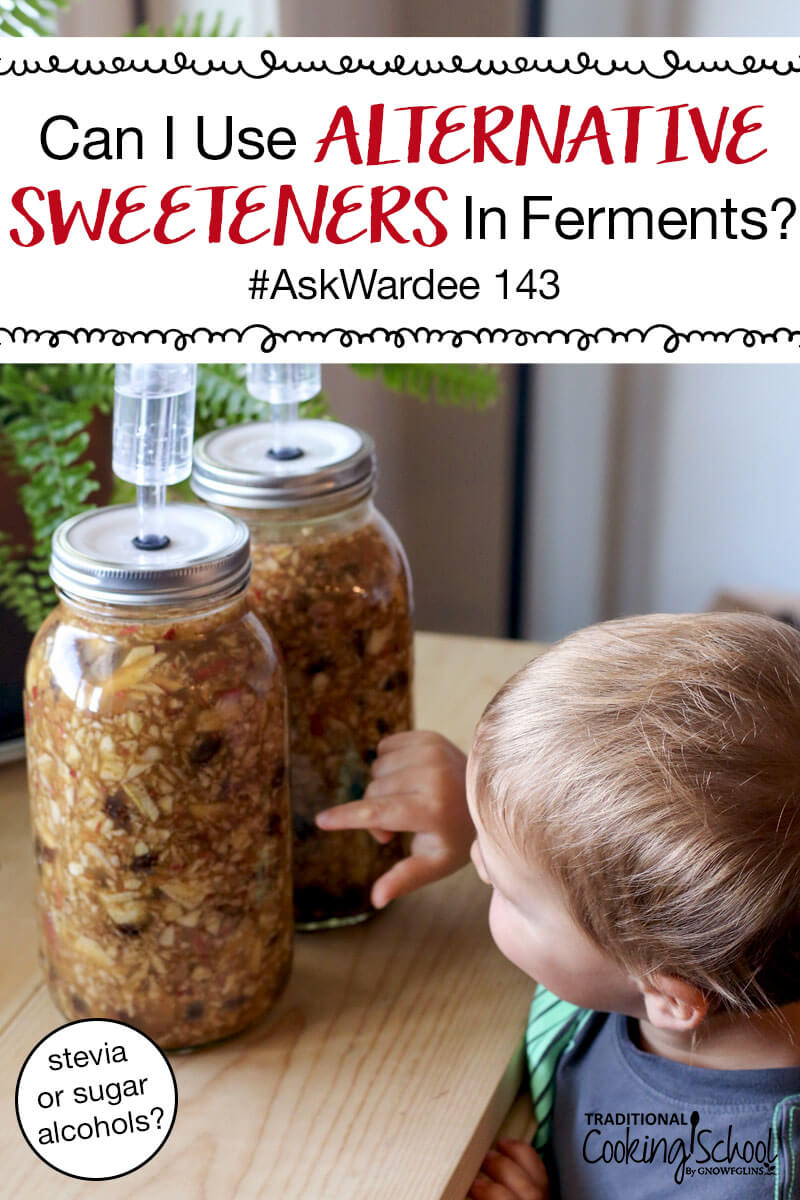
Want to eat low-sugar and yet still make and enjoy fermented foods that call for sugar? Can you use alternative sweeteners such as sugar alcohols or stevia in these ferments?
I’m answering these questions on today’s #AskWardee! Keep reading or watching below to learn more!
Subscribe to #AskWardee on iTunes, Stitcher, YouTube, or the Podcasts app.
Table Of Contents
The Question: Can I Use Alternative Sweeteners In Ferments?
Beth T. asked:
I was wanting to do more fermenting. Due to certain health concerns I am trying to avoid sugar, even natural ones. I was wondering if it is possible to use alternative sweeteners like sugar alcohols in fermented vegetables. Would you add these in at the beginning or at the end? Would there be certain sweeteners that would be better than others? —Beth T.
Beth, thank you for your question!
Because we’re featuring your question today’s #AskWardee, you’re getting a gift — a FREE eBook and Video Package! Our team will be in contact with you so you can choose which one you’d like!
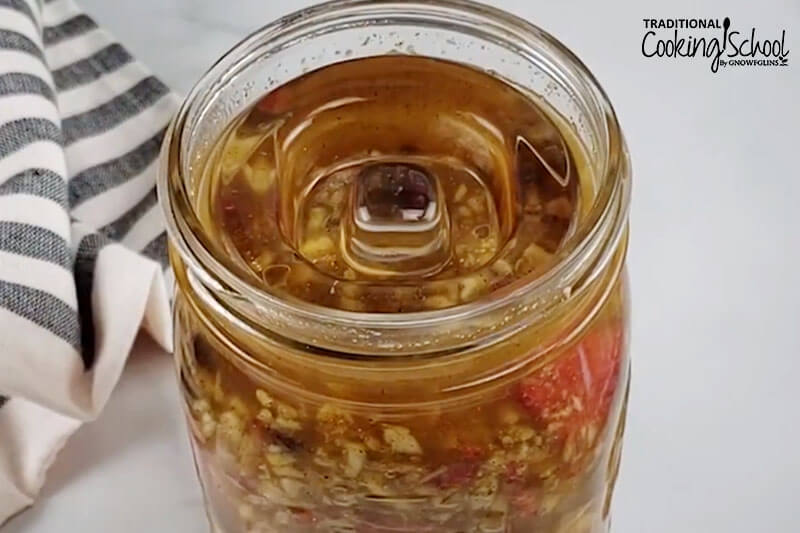
Why Do We Need Sugar In Ferments, Anyway?
Sugar is the food for the fermenting organisms! In the case of lacto-ferments, which we most often discuss here, those organisms are the beneficial bacteria called lactobacilli.
Although some recipes like chutney or sweet pickles call for added sugar, the fermenting organisms get enough “sugar” from the sugars and starches in the fruits and vegetables themselves, making the added sugar not necessary for the recipe’s success.
So, if you don’t care for or don’t want the extra sweetness, just leave out the sugar that’s in the recipe. It’s most likely there for taste anyway — to balance out the sour or saltiness.
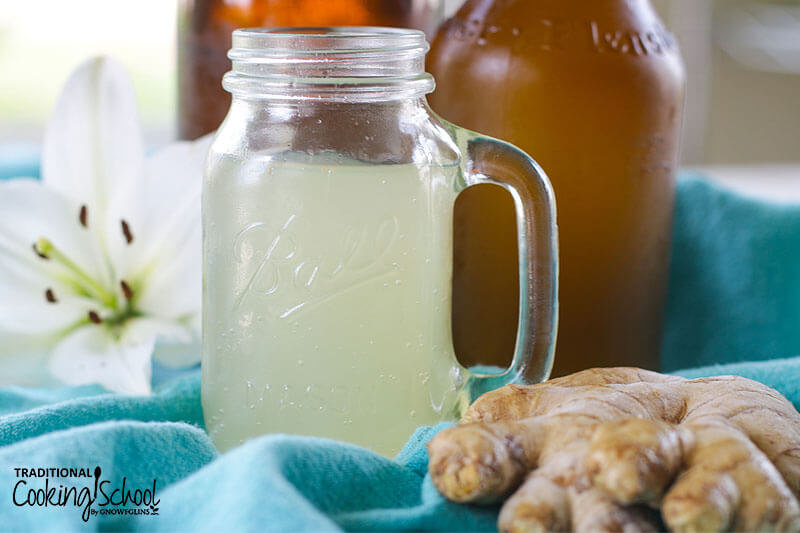
Two Ferments That Need Sugar!
There are at least two types of ferments where you should NOT omit the sugar (nor use a sugar alcohol instead).
First, when fermenting a protein such as meat, which does not itself contain sugar for the organisms. That is why, in recipes such as fermented sausages or corned beef, the recipe calls for a sweetener and it is NOT optional.
Don’t omit the sweetener or substitute an alternative sweetener; neither option would ensure the fermenting organisms have food to eat and the ferment will fail and/or not be safe to eat.
A second exception is a fermented beverage where the “base” liquid is a sweet liquid, such as honey sweetened ginger beer, Kombucha, or water kefir. If you omitted the sweetener or subbed in an alternative sweetener, the culture would have nothing to eat and the beverage would not turn out.
In these two ferments, the common thread is that the base “food” does not contain sugar, so it must be added for the organisms to flourish.
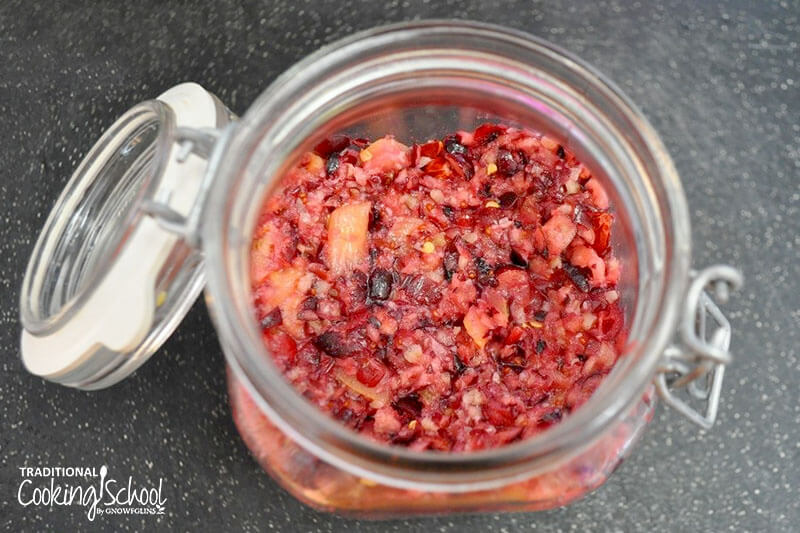
How To Use Alternative Sweeteners In Ferments
Although I researched it, I couldn’t find anything conclusive about how alternative sweeteners such as xylitol, erythritol, or stevia perform during fermentation.
My thought is… why use them, though? The fruit and vegetable ferments don’t need added sweetener, because the fruit and veggies contain enough sugar for the ferment to work very well on its own.
So if you really want a sweeter ferment and don’t want to use honey, maple syrup, coconut sugar, or other sugars… add your alternative sweetener such as erythritol or stevia after fermentation, sweetening to taste.
I don’t recommend using alternative sweeteners at all in ferments that depend on sweetener, such as the fermented meats or fermented beverages I mentioned earlier. If you want to make low sugar fermented beverages, ferment them longer to reduce the sugar as much as possible.
However, the water kefir culture is sensitive to being deprived of food and may not thrive if fermented too long.
Is there a better alternative sweetener than others for ferments (adding after fermenting, not during)? Not really. Use what you’d like.
By the way, I discussed whether or not alternative sweeteners were healthy in these past #AskWardee episodes: Are Erythritol and Xylitol Healthy? and Which Stevia Is Best?
More Fermenting Info, Reviews, and Recipes…
Check out my Lacto-Fermentation 101 Free Video Series RIGHT HERE.
And if you haven’t already, CLICK HERE to download our FREE “Fermenting Formulas” Cheat Sheet, where I share formulas so you can create your own safe ferments using the product you have on hand — salsas, relishes, krauts, beverages, and more!
We also have extensive archives of ferment recipes here!
Additional Fermenting Articles
- Troubleshooting Your Ferments (KYF172)
- Lacto-Fermentation 101 Video Series
- 7 Fermenting Mistakes You Might Be Making
- Which Water is Best for Fermenting?
- Which Kind of Salt Should I Use for Fermenting?
- Do Lacto Ferments Contain Alcohol?
- How to Tell if Your Kombucha is Moldy (And What to Do About It)
Any Questions Or Comments?
If you have other questions or comments about your own experience with fermenting with or without sugar, be sure to leave them in the comments!
Helpful Links
- FREE “Fermenting Formulas” Cheat Sheet
- Honey Sweetened Ginger Beer
- How To Make Kombucha
- How To Make Water Kefir
- 5-Spice Apple Chutney
- Are Erythritol and Xylitol Healthy? #AskWardee 080
- Which Stevia Is Best? #AskWardee 107
What are your favorite low or no-sugar ferments? Have you ever tried using alternative sweeteners in ferments?
Want to eat low-sugar and yet still make and enjoy fermented foods that call for sugar? Can you use xylitol, erythritol, stevia, and other alternative sweeteners in ferments? Most of the time… yes! Click to learn how, plus all about the two types of ferments that always need real sugar! #sugarfree #ferments #fermenting #stevia #lowcarb
...without giving up the foods you love or spending all day in the kitchen!

2 free books:
Eat God's Way
Ditch the Standard American Diet, get healthier & happier, and save money on groceries...
We only recommend products and services we wholeheartedly endorse. This post may contain special links through which we earn a small commission if you make a purchase (though your price is the same).


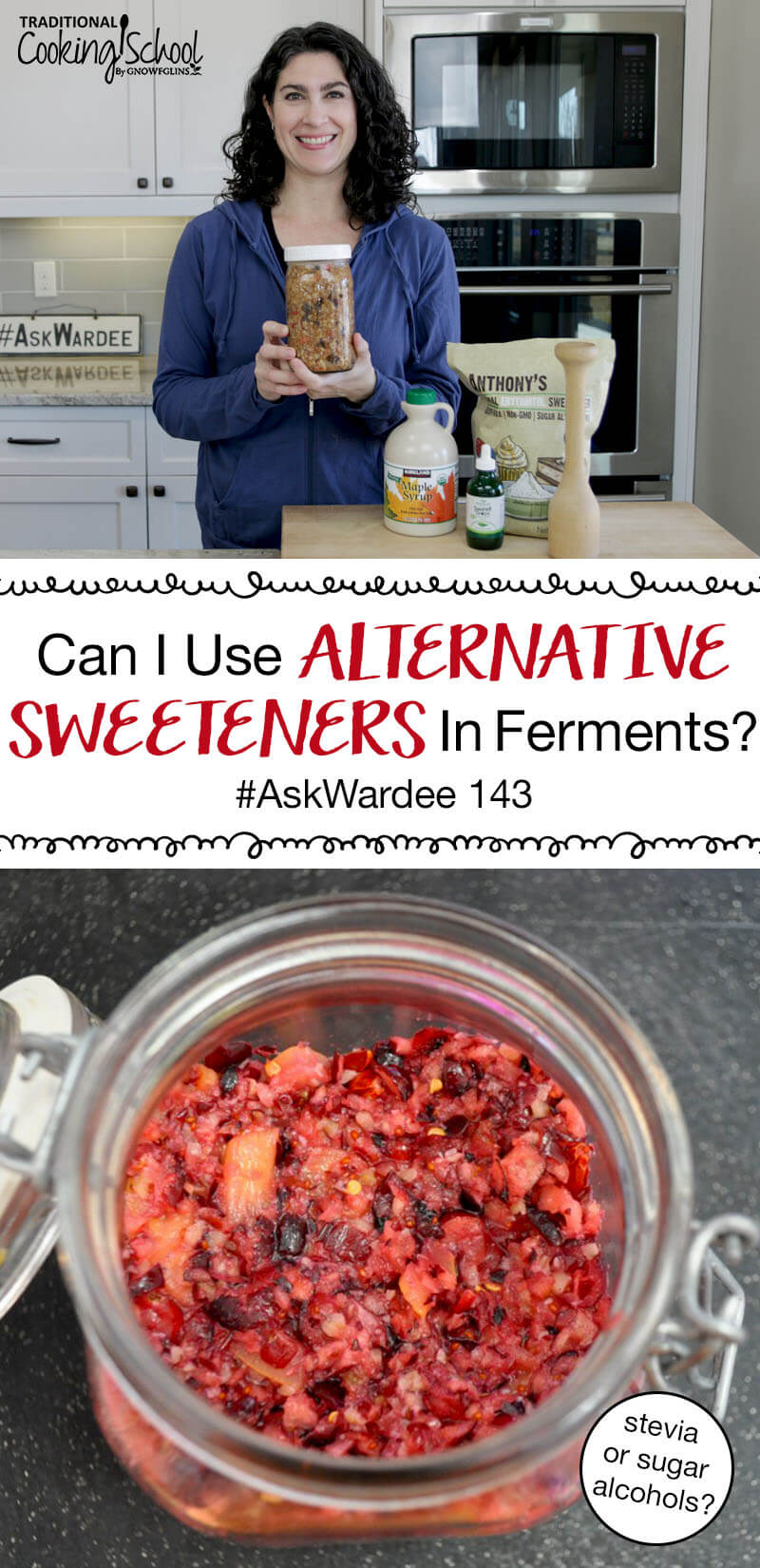
Can cranberries be fermented? Where can I find recipes for fermented cranberries?
Hi, Linda: Yes, they can! Here are two links to recipes on our site that include fermented cranberries:
https://traditionalcookingschool.com/food-preparation/recipes/lacto-fermented-cranberry-sauce/
https://traditionalcookingschool.com/food-preparation/recipes/fermented-cranberry-relish/
—Sonya, TCS Customer Success Team
Exactly what I do. I add alternative sweeteners after. Ferments come out great! I used to make corned venison and I used a combo of yacon syrup, honey and Xylitol.
Along the same lines.. But with canning.. Would alturnitive sweetners work for canning. Say like for pickled beets or sweet pickles?
Thank you!
Debbie
Hi, Debbie: We don’t really cover canning, but here’s a link to a site that might have an answer for you:
http://www.sbcanning.com/2011/08/sugar-substitutes-which-are-approved.html
—Sonya, TCS Customer Success Team
What about allulose? It is a sugar, but zero calories. Has anyone tested it?
I want to make a Friendship Cake and it requires fermenting the fruit in a jar for 30 days. Can I use MonkSweet Plus which contains Monkfruit, Erythritol, and Stevia to substitute for the sugar? Will it ferment correctly without real sugar?
Thanks.
Hi, Johnnie,
We don’t recommend using alternative sweeteners to ferment. Wardee discussed whether or not alternative sweeteners were healthy in these past #AskWardee episodes:
https://traditionalcookingschool.com/food-preparation/are-xylitol-erythritol-healthy-aw080/
https://traditionalcookingschool.com/q-a/which-stevia-is-best-brand-aw107/
~Peggy, TCS Customer Success Team